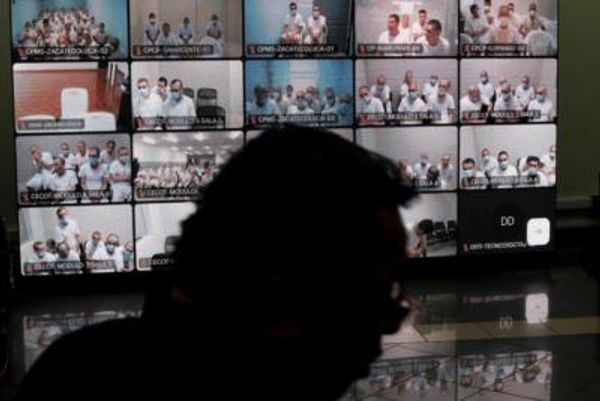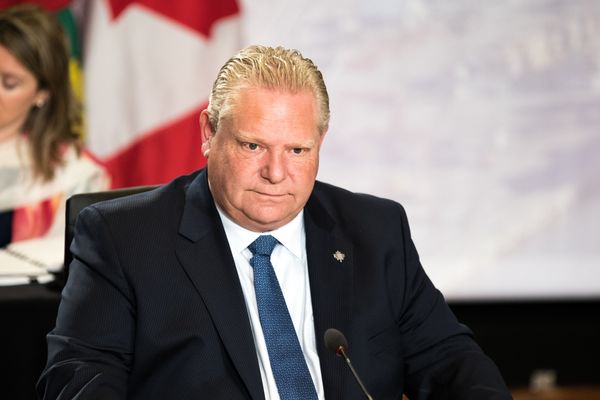WASHINGTON _ The retirement of Justice Anthony Kennedy will leave a hole in the center of the Supreme Court.
A Ronald Reagan appointee who evolved into a frequent swing vote since he joined the court in February 1988, Kennedy famously frustrated conservatives when he aligned with liberals on hot issues from abortion and gay rights to crime and punishment.
More often than most, though, he's been on the winning side of the court's 5-4 votes that have resolved the toughest legal problems.
"Justice Kennedy," President Donald Trump said Wednesday at a White House ceremony, is "a great man of outstanding accomplishment."
Now Trump will get a chance to replace this 81-year-old justice whom the president praised but with whom dyed-in-the-wool conservatives have often found fault.
The Sacramento, Calif., native authored landmark opinions striking down a Texas ban on homosexual sodomy, upholding a constitutional right to same-sex marriage and prohibiting the death penalty for juveniles. He wrote one opinion extending habeas corpus rights to foreign prisoners detained at Guantanamo, and another ordering California to reduce its prison population.
More broadly, the Stanford and Harvard Law School graduate's influential straddling of the court's middle drove observers to speak, sometimes resentfully, of there being a "Kennedy court," as if he were the real chief.
Underscoring his key role, Kennedy voted with the court's majority in 96 percent of the cases that divided justices in the term that ended in June 2016. That was more than any other justice, statistics compiled by the nonpartisan website SCOTUSblog show. Kennedy has led all other justices in being with the majority over the past decade.
Even when he has lost, Kennedy has retained his taste for moderation. He wrote only four dissenting opinions in the last two completed terms. By contrast, arch-conservative Justice Clarence Thomas wrote 37 dissents during the same period.
A doggedly earnest rather than scintillating questioner during oral argument, Kennedy occasionally soared in his writing, although his rhetorical flourishes were not to everyone's taste.
"At the heart of liberty is the right to define one's own concept of existence, of meaning, of the universe and of the mystery of human life," Kennedy wrote in a 1992 opinion concerning abortion rights.
The late Justice Antonin Scalia, in response, dismissed Kennedy's "epic tone" and later mocked what he called the "famed sweet-mystery-of-life passage." The excoriation did not stop Kennedy, who peppered subsequent opinions with similar musings, as in his 2012 same-sex marriage decision, which called marriage "essential to our most profound hopes and aspirations."
"What are the scariest words in constitutional law these days?" the conservative Weekly Standard magazine once wrote, before answering, "Justice Kennedy delivered the opinion of the court."
Kennedy and his wife, Mary _ a former teacher at Sacramento's Golden Empire Elementary School _ have retained at least some connections to their hometown. For years, Kennedy has taught a three-week class in Salzburg, Austria, sponsored by the University of the Pacific's McGeorge School of Law, where he first began teaching in 1965.
At the time, Kennedy had assumed his late father's law and lobbying practice, prior to his appointment to the 9th U.S. Circuit Court of Appeals in 1975.
Kennedy's unexpected ascension to his often-pivotal position on the Supreme Court started with the 1987 confirmation flameout of Judge Robert Bork. A far more prominent figure as both a scholar and appellate judge, Bork's uncompromisingly conservative enunciations and an occasionally ruthless Democratic opposition led to his defeat on a 42-58 Senate vote.
Reagan's next pick, appellate Judge Douglas Ginsburg, withdrew following revelations of his past marijuana use. The back-to-back humiliations drove the Reagan White House to return to the president's home state of California for what was deemed an utterly safe pick.
"I am hopeful that the nomination ... will bring us back together," then-Sen. Dennis DeConcini, D-Ariz., said at the start of Kennedy's Senate Judiciary Committee hearingsin December 1987, adding that "we do not have everyone jumping out on this issue, and on this nomination, as we did before."
The Senate quickly confirmed Kennedy 97-0. Soon enough, though, he was proving more of a moderate than some of his Republican backers had hoped for.
Notably, in the 1992 case called Planned Parenthood of Southeastern Pennsylvania v. Casey, Kennedy helped keep alive what he and his allies termed the "essential holding" of the court's 1973 Roe v. Wade decision protecting a woman's right to an abortion. Conservatives considered it a betrayal.
"He had indicated that he would overturn Roe v. Wade, and then changed his vote," Bork told The New York Times in 2005. "He was expected to be different."
Underscoring his ability to frustrate advocates from all sides, Kennedy later angered abortion rights advocates with the substance and the tone of his 2007 opinion upholding a federal ban on so-called partial-birth abortions.
"It seems unexceptionable to conclude some women come to regret their choice to abort the infant life they once created and sustained," Kennedy wrote.







